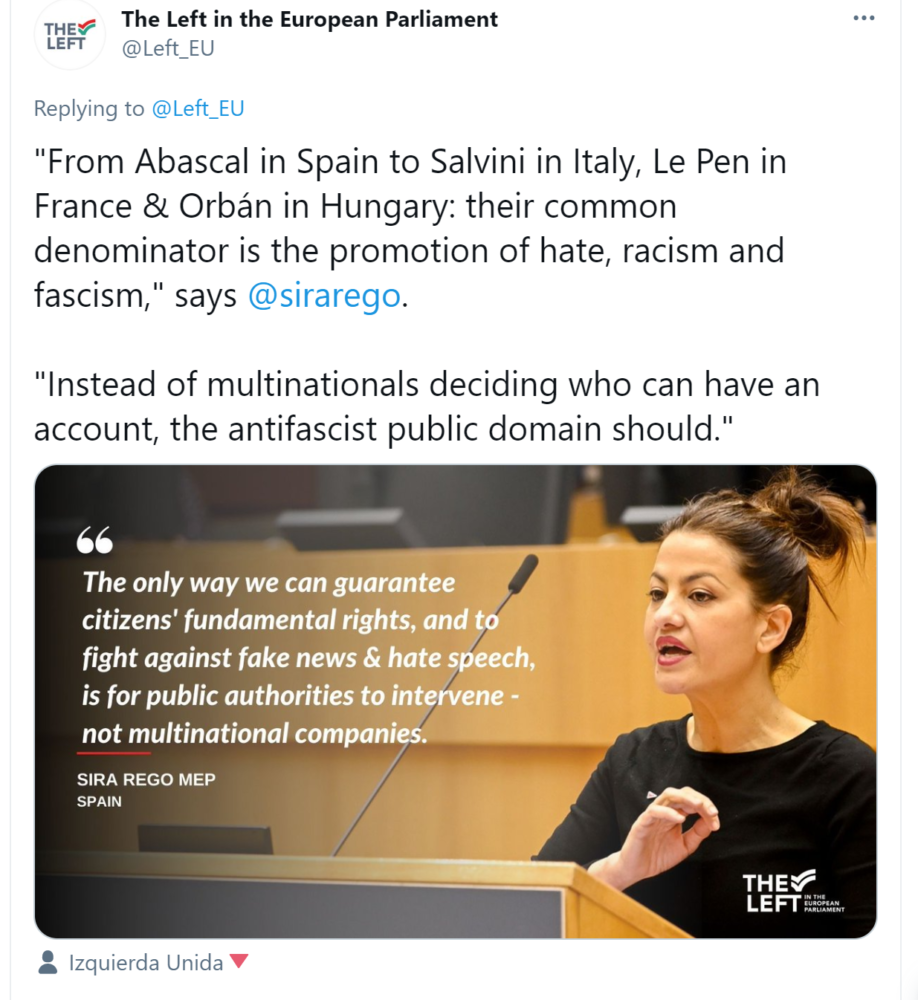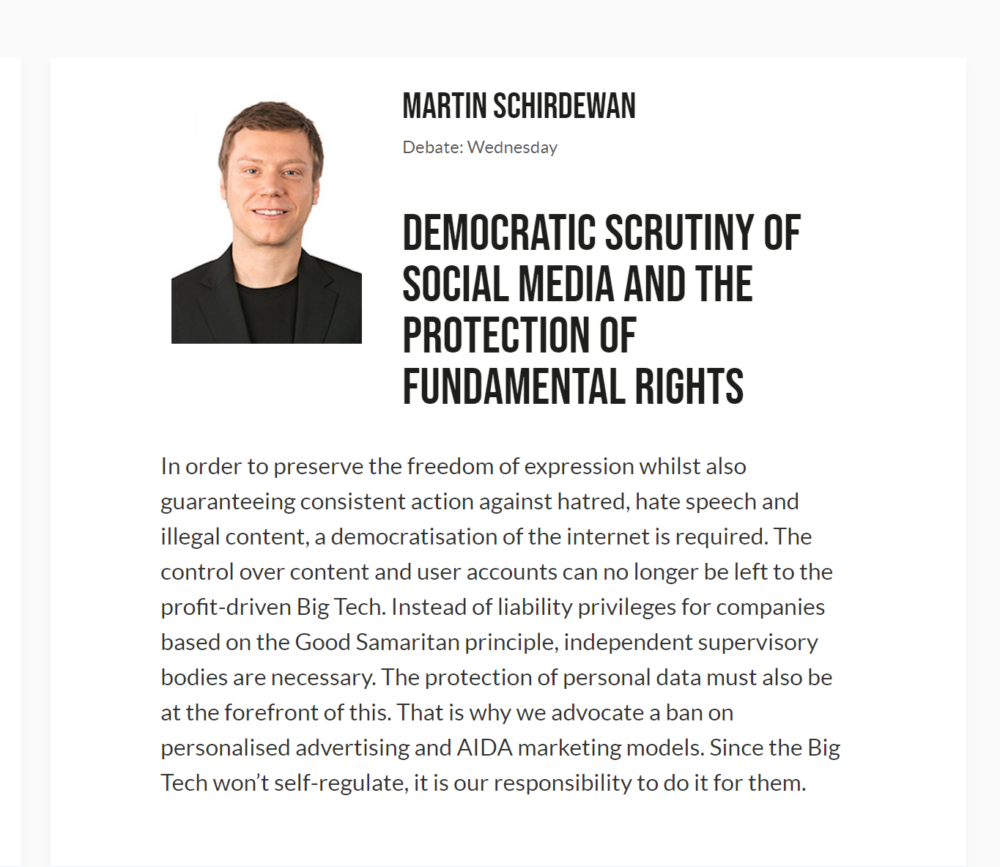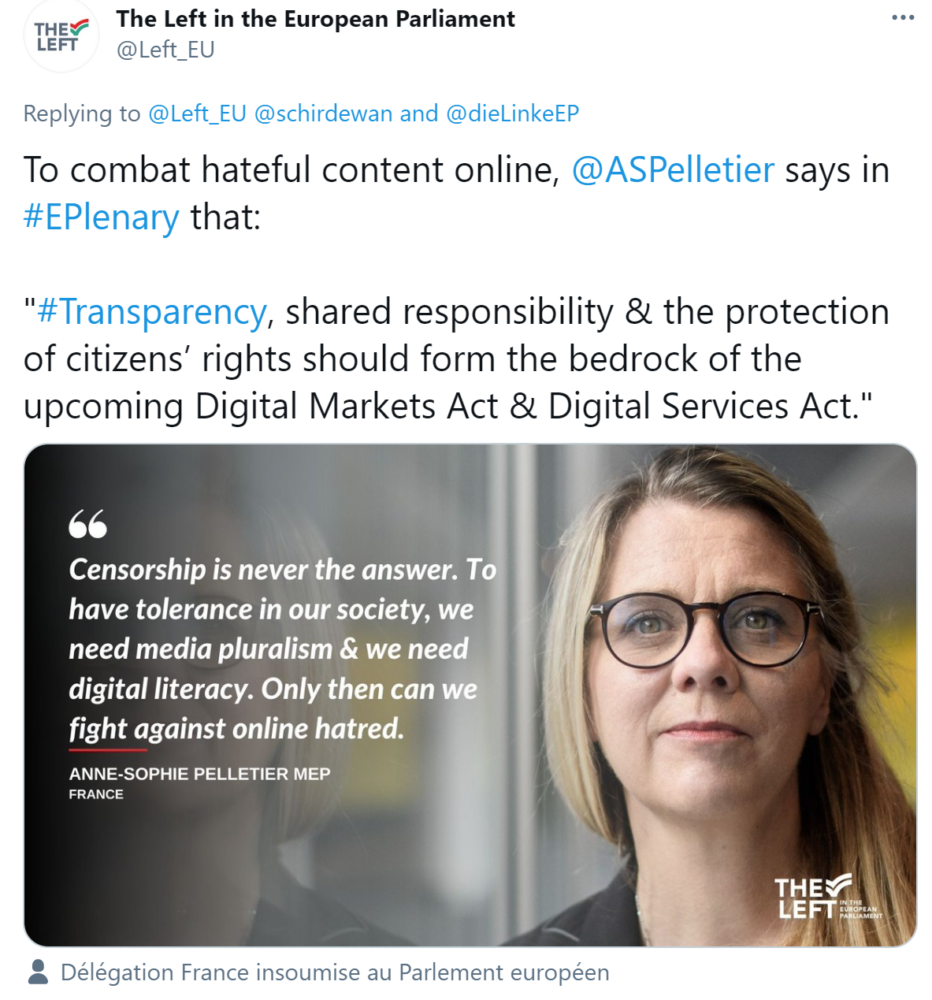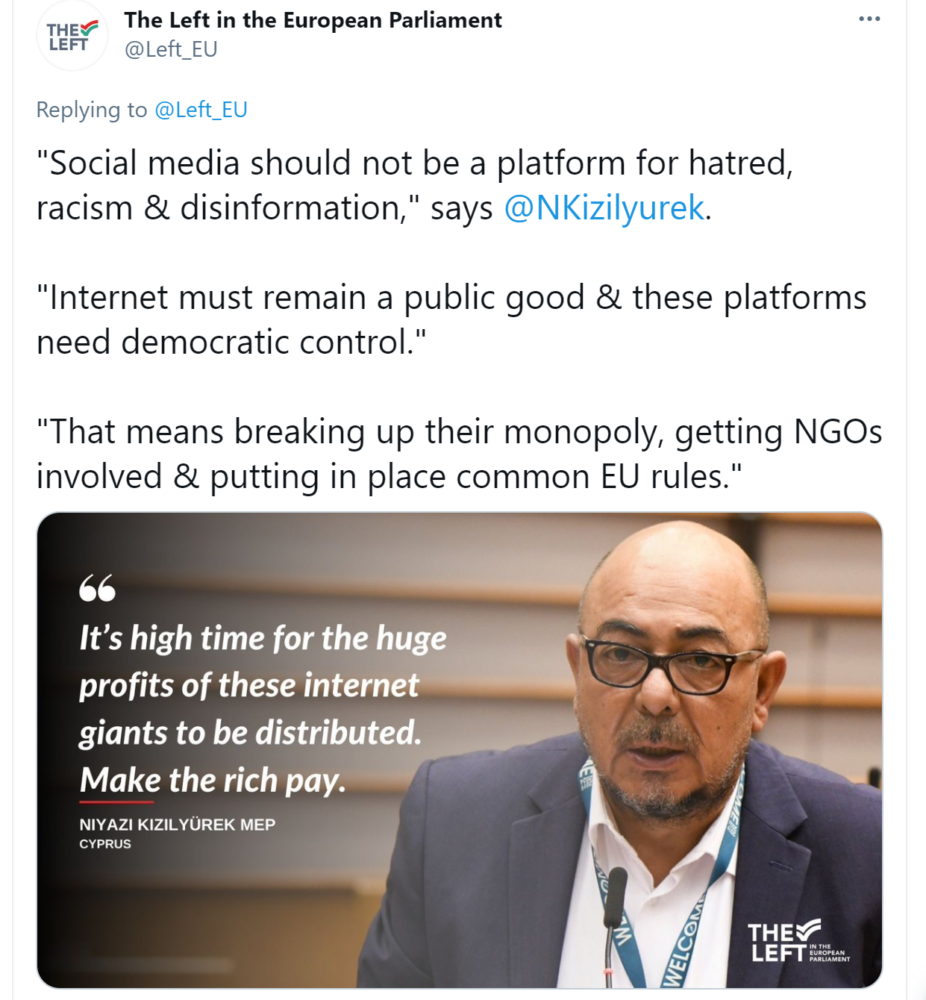Topics
Categories
Tags
- far-right,
- freedom of expression,
- internet,
- social media
With the storming of the US Capitol on 6th January and the subsequent deplatforming of Donald Trump by major social media platforms, the perennial debate over who should have ultimate control over internet content whilst also guaranteeing freedom of expression has been brought back into sharp focus.
Should Big Tech continue to self-regulate, or is it finally time for laws to be introduced that will control what Silicon Valley CEOs can and cannot do? That was part of Parliament’s debate today on ‘Democratic Scrutiny of Social Media and the Protection of Fundamental Rights’.
While some welcomed the decision to remove Donald Trump, fascist and alt-right supporters, white supremacist groups and QAnon conspiracists from social media platforms, such a move only came at the end of the Trump presidency and after the catastrophic events of 6th January.
The fact that this coordinated deplatforming was decided by just a few Silicon Valley CEOs made many people realise the immense power that online giants hold over the public discourse.
Of course, Trump’s internet deplatforming was too little, too late, and the long-term damage had already been done in spreading far-right hatred. It also points to a long overdue, much-needed overhaul and debate over regulating the internet.
Trump’s refusal to recognise the election result, and the call for insurrection at Washington DC perfectly illustrate some of the main problems that we usually discuss in connection with social media. The issues revolve around the fact that social media has become the main platform for public debate, giving private actors de-facto control over it – including who has access.

Another aspect is the way their algorithms have shaped public debate by promoting far-right and conspiracy theory content. A third major consideration is the dominance of just a few companies in this sphere – exacerbating the reach of these companies in our everyday lives.
It has to be noted that there is a difference between the EU and the US in how social media are treated. In the US, Facebook and Twitter are seen as private platforms, where the company that runs it cannot be forced to accept content that they consider unacceptable.
In European civil law, however, Facebook and Twitter would be categorised as ‘public space’, allowing our courts and judiciary to enforce certain principles.
For example, member state judges and EU law can demand the reinstatement or removal of certain posts and user accounts. In this respect, in European countries, some of the deplatforming would not hold water when brought to a courthouse.
But it is obvious that the protection of fundamental rights cannot be left to the platforms. Then again, in the case of freedom of speech, it is also clear that there should only be limited regulation about what content can appear on social media and who should be allowed to post.
Martin Schirdewan, co-president of The Left in the EU Parliament, says:

Schirdewan believes the upcoming legislative work on the Digital Services Act (DSA) and the Digital Market Act (DMA) should find the right balance between measures to guarantee freedom of speech, and a regulatory framework for gatekeeper platforms.

This framework should include a clear instrument for cooperation between platforms and competent authorities of the country of destination in order to receive all information required for public administration to enforce this regulatory framework.
Of course, such an instrument must be accompanied by clear safeguards against any arbitrary use.
In addition, the DSA should include a tailored liability regime, which holds gatekeeper platforms liable for their actions or inactions.
This should ideally include a strict regulatory approach – or even better, a ban – on targeted advertising as an effective way to address the attention seeking business models of these platforms.
On the other hand, the DMA will have to address the market power of gatekeeper platforms. Unfortunately, so far it lacks an ambitions approach to make competition policy fit for the digital age.

Photo courtesy of Animated Heaven on Flickr
